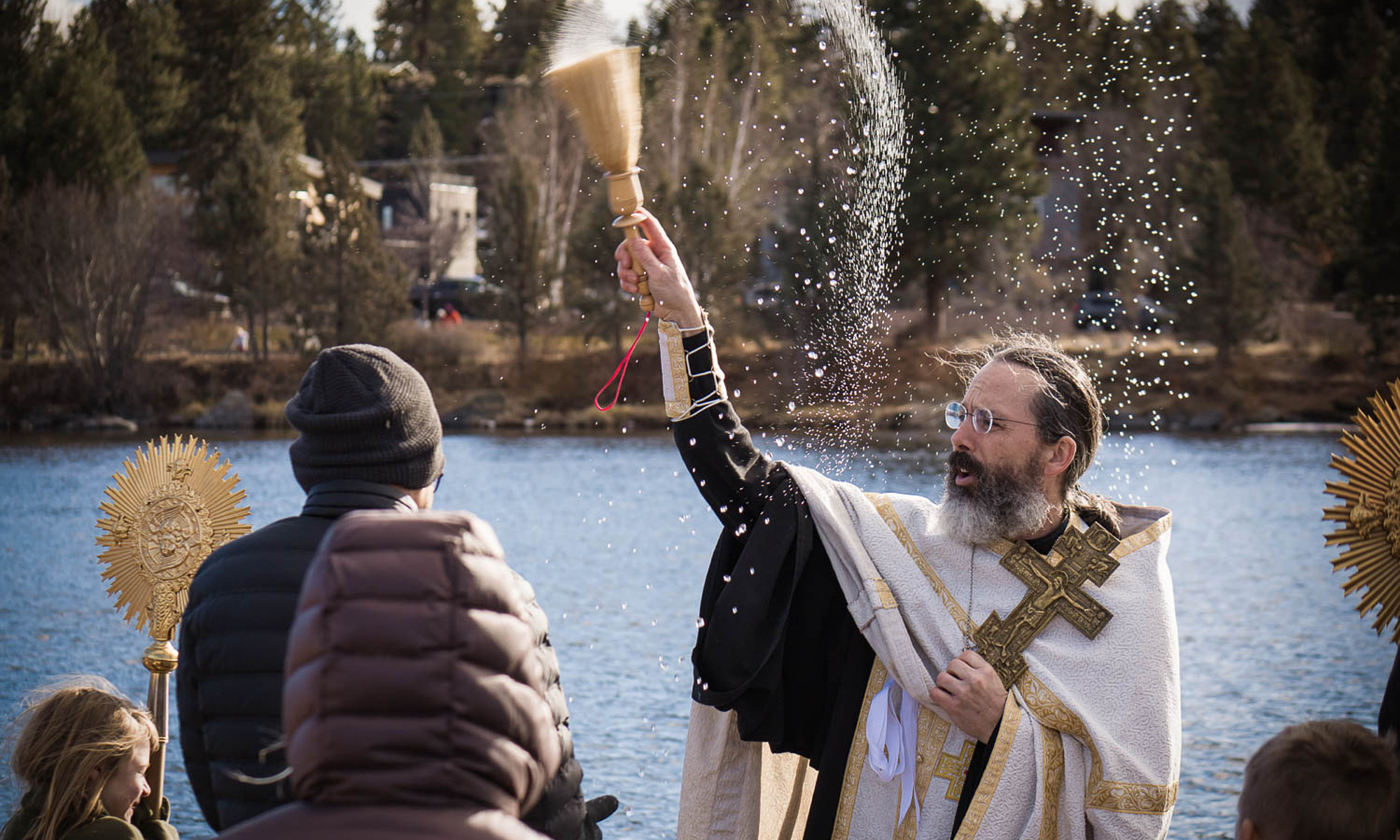One struggle I was looking for in the journals of St. Jacob is racism. St. Jacob was half Russian, half Alaskan native. And in much of the world’s history during this colonial era, racism is thoroughly embedded. I did find one reference of such an issue from Governor Chistiakov in Sitka, when St. Jacob, his wife, and father first arrived, the governor being described by Archpriest Michael Oleksa as “racist, opposing, and attempting to prohibit Russian-native marriages”. Even then, mentioned in the same source, this governor was known to be anti-clerical. Meaning: he already did not like this priest coming around in the first place, much less his native lineage.
Continue reading “Russian Alaska and a Creole Priest”Yes, Lord — Scriptures, Church, Christ
The holy scriptures—Christ’s Church—Christ himself: how incredibly fortunate we are!
First, the scriptures. John Chrysostom says this:
Great is the profit of the holy Scriptures, and all sufficient is the aid which comes from them…for the divine words are a treasury of all manner of medicines. Whether it be needful to quench pride, to lull passion to sleep, to tread under foot the love of money, to despise pain, to inspire confidence, to gain patience—in the Scriptures we find abundant resources. For what man—of those who struggle with long poverty or who are nailed by a grievous disease—will not, when he reads the passage before us, receive much comfort? This man had been a paralytic for thirty eight years, and he saw others delivered each year, and himself bound by his disease… “Yes, Lord, he says, but I have no man…to put me in the pool.” What can be more pitiable than these words? …Do you see this heart crushed through long sickness? Do you see all violence subdued?…He did not curse his day…but replied gently … Yes, Lord. (Homily 37 on Jn 5)
“Great is the profit”, he says. “All sufficient is the aid which comes” from the scriptures. Let us seek (as St. John put it) the medicine for our pride, our love of money, our fear of pain. And instead, through the reading of the scriptures, find confidence and patience in our long sickness—maybe we are not sick of body, but we are certainly so in soul.
Continue reading “Yes, Lord — Scriptures, Church, Christ”St. Jacob’s Greatest Gifts to the Church
St. Jacob followed in the footsteps of many who came before him, not only the big names like St. Herman, St. Juvenaly, and St. Innocent, but more than that, the faithful, everyday folks who worked for the Russian-American Company and lived a faithful witness among the Alaskan peoples. What we find all over St. Jacob’s journals is mentions of locals who had been baptized by laymen and just did not have access to a priest. “It remained for me only to establish them in the faith and chrismate them.”
Continue reading “St. Jacob’s Greatest Gifts to the Church”St. Tikhon visits Oklahoma
Visitation by His Grace Bishop Tikhon (Bellavin), Bishop of the Aleutians and North America
to the Orthodox parish in Hartshorne, Indian Territory (Oklahoma)
as related in the Russian Orthodox American Messenger, May 1904
Our Orthodox Visitor: On April 6 (19), Bright Tuesday, Hartshorne had the good fortune to receive His Grace, Vladyka Tikhon. Meeting the archpastor at the railway station were the rector of the church, Hieromonk Tikhon (Rostovsky); the church warden, Vasiliy Prokopchak; and the local brotherhood, led by their chairman, Ivan Kitchak; along with a host of children. Led by Hierodeacon Anthony, His Eminence was brought from the station to the church in a carriage, accompanied by the crowd gathered.
Continue reading “St. Tikhon visits Oklahoma”The Monk Who Never Judged Anyone and Died Joyfully
Coming up on the Sunday of the Last Judgment, we might feel a stirring of some of those fears we have, deep down, of that Judgment Day. But there is a trick. We actually have a large amount of control over how we are judged.
Christ says, Judge not, and you will not be judged. And, he adds elsewhere, with the measure you use, it will be measured back to you. Meaning, if I am incredibly lenient with my judgment of others, the Lord will also be incredibly lenient with me. There is a beautiful entry of an unnamed monk in the Prologue of Ochrid:
Continue reading “The Monk Who Never Judged Anyone and Died Joyfully”